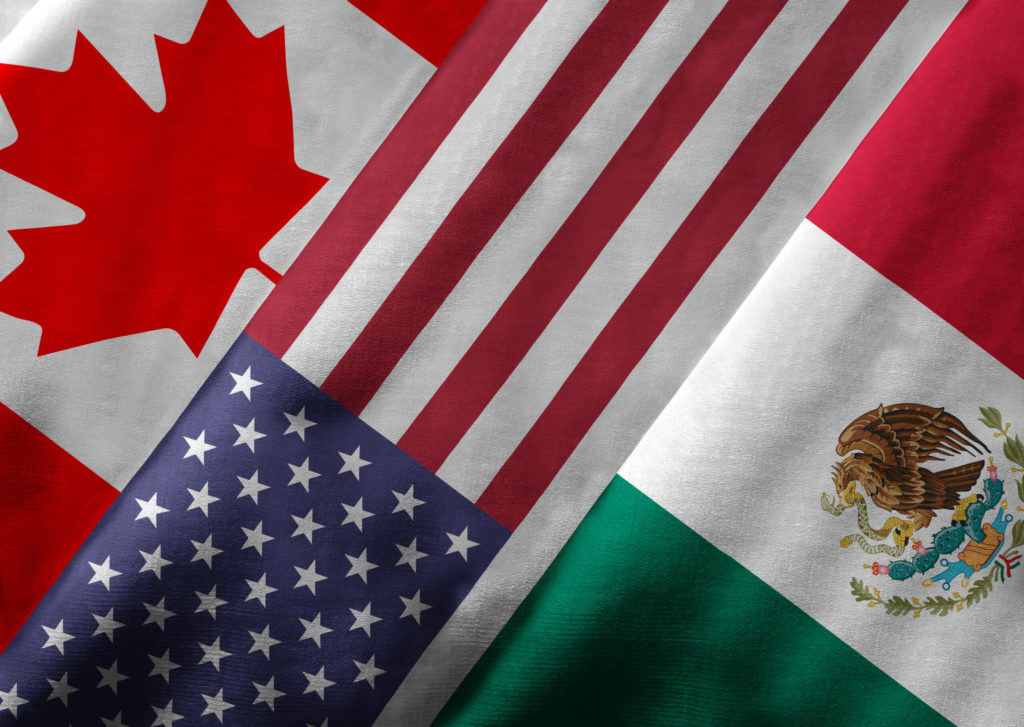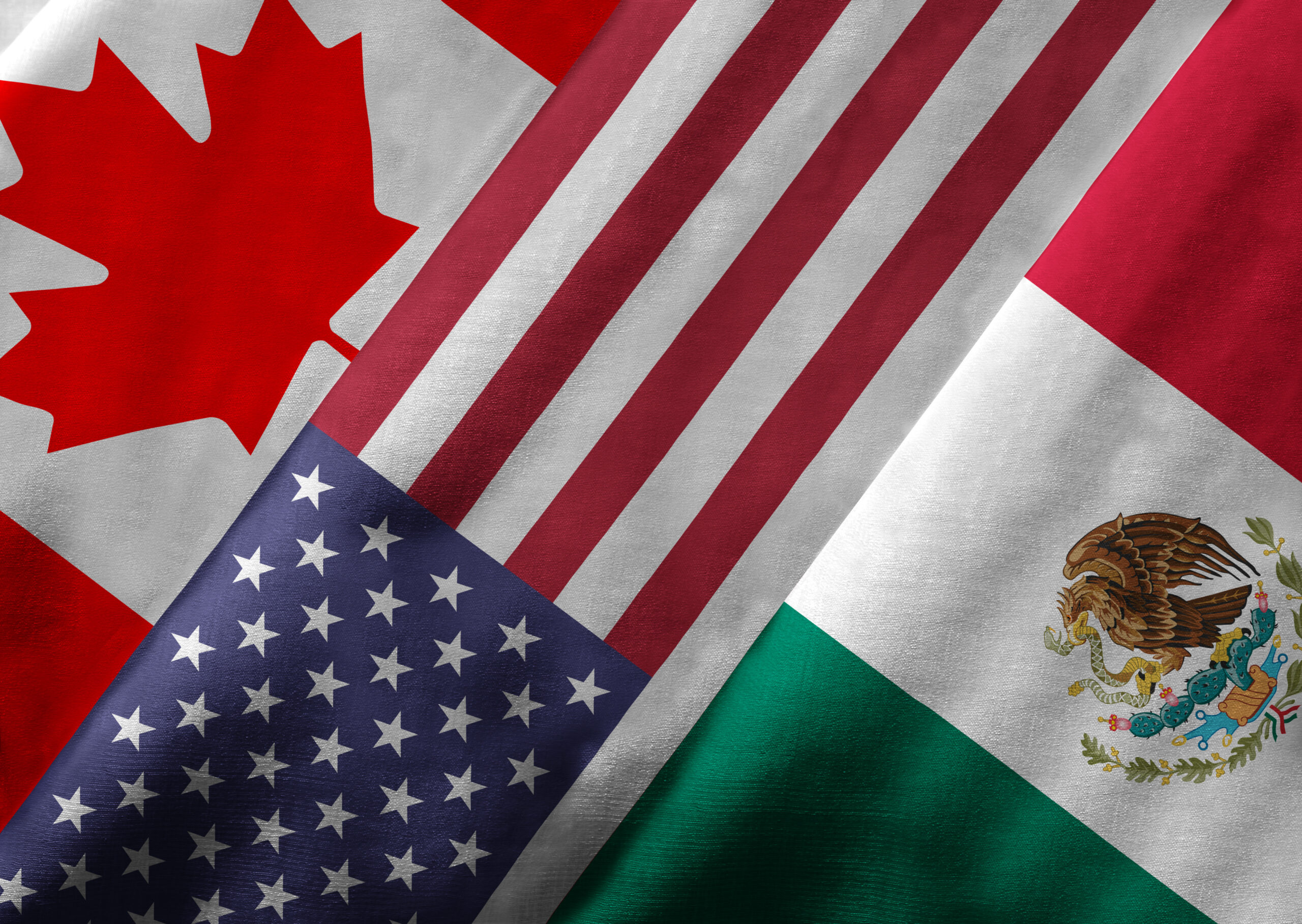
Complex Energy Relations Between the U.S., Mexico, and Canada

The three North American superpowers appeared to be enhancing their relations following the United States-Mexico-Canada Agreement (USMCA) signing. The USMCA is a free-trade deal established in 2018, which came into effect in 2020. However, relations have become strained. Mexico has increasingly sought to nationalize its energy to achieve greater energy security. But this move may ultimately have the opposite impact. North America has faced energy shortages and rising prices following the Russian invasion of Ukraine. Not to mention additional challenges as it pushes for a green transition. Experts are now questioning whether Mexico may be breaking the USMCA by insisting on the nationalization of its energy.
What is the USMCA?
The USMCA was adopted to replace the North America Free Trade Agreement (NAFTA) to enhance trade and boost regional economic growth. The agreement includes chapters on intellectual property protection, enforcement provisions for legal and illegal trade and more.
The adoption of the USMCA has been seen as key to improving U.S.-Mexico-Canada trade relations. It has enhanced government-to-government engagement, having been supported by the North American Leaders’ Summits (NALS), the U.S.-Mexico High-Level
Economic Dialogue, and the Roadmap for a Renewed U.S.-Canada Partnership. Trade in the region has improved following the pandemic, with an average increase of 6% between 2019 and 2021. In 2021, 75% of Canadian and Mexican imports arrived from the U.S. This follows the two countries forming America’s largest export markets and trading partners. USMCA has spurred several areas of improvement, compared to NAFTA, since it came into effect. However, the long-term impact of the agreement will be better understood when it comes under review in 2025-26.
How Have Relations Between the Three Countries Been Impacted?
While there have been many advancements under the USMCA, Mexico’s President Andres Manuel Lopez Obrador (AMLO) has made it clear that he is putting Mexico first. So, AMLO has introduced numerous policies to enhance the nationalization of Mexico’s energy. These range from fossil fuels to renewables and mined products supporting green energy-related technology. This nationalization also extends to oil and gas. Now, AMLO is making major plans for new refineries. He is increasing the role of national oil firm Petroleos Mexicanos (PEMEX), and restricting foreign company participation in the sector. This includes renewable energy production, and the mining of metals and minerals key to the green energy transition, such as lithium.
In July last year, the U.S. and Canadian governments filed a formal complaint against Mexico’s nationalist policies. The nations suggested the new policies go against USMCA. The complaint stated that AMLO’s policies discriminated against U.S. and Canadian companies by enhancing the role of PEMEX and the national power utility Comision Federal de Electricidad (CFE). Foreign companies have also faced severe delays due to Mexico’s bureaucracy. If not resolved, the issue will escalate, with a dispute panel being called to adjudicate.
AMLO responded by saying that Mexico had not broken any part of the USMCA in its efforts to nationalize Mexican energy. His reasoning for this move is that it aims to reduce corruption in the sector. He also believes that previous Mexican governments have favored the participation of foreign energy firms, making it clear that the issue is a domestic matter. He referred to an article included by Mexico in the agreement stating Mexico’s “inalienable” ownership of its oil and gas. However, analysts believe that if Mexico were to go in front of a panel it would likely lose the dispute and could face punitive U.S. tariffs.
The Three Nations Held a Summit to Resolve Their Issues
This month, the three countries’ leaders held a summit in Mexico. Before the meeting, Canadian Prime Minister Trudeau suggested he would be broaching the energy issue to find a resolution. He stated, “Both President Biden and I are going to be… fairly clear with President Lopez Obrador that this… needs to be understood as a way to help Mexico develop, a way to continue to draw in investments from companies in Canada and the United States.”
However, following the summit, AMLO stated that the dispute over Mexico’s energy policies had not been discussed at the summit. At a news conference, AMLO said, “we did not discuss that.” Although, Trudeau did raise the issue. AMLO responded that he would receive Canadian companies that had issues they wanted to resolve. AMLO has previously met with U.S. energy companies to discuss their problems with the new policies. However, the U.S. and Canada have escalated the issue beyond this level by filing a request for dispute settlement talks to establish a more formal process toward a resolution.
Despite positive developments in North America under the USMCA, Mexico’s president has made it clear that Mexican energy security comes first and foremost. Regardless if it is to the detriment of regional energy security.
The issue of Mexico’s nationalist energy policies has been discussed between the three powers for several months without resolution, including in the recent trilateral summit. A dispute panel is now likely to be called to address the situation. Together they will determine whether Mexico has broken USMCA terms, with the potential for formal repercussions in the form of punitive tariffs to be imposed on Mexico.
Published at Mon, 20 Feb 2023 07:49:17 -0800



